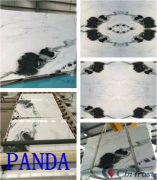Time to Address Ethical Issues of Stone
Building magazine has this week devoted three pages to 'exposing' the use of children in the stone industry in India, often effectively as bonded labour paying off family debts even though bonded labour has been outlawed. They have picked up the campaign that Marshalls have been running and developed it with the Ethical Trading Initiative. They use pictures that Marshalls first used several years ago in their brochures. A few months ago Marshalls were involved when ITV News featured the subject. The Telegraph newspaper covered it in December. There has been a lot of other media coverage. It is an issue that is not going away. I was interviewed for a Radio Four programme a few years ago and had to admit the industry was not demanding or pursuing an ethical trading mark to help consumers make decisions.
It is an important issue. A lot of the stone used in the UK comes from China and India and other countries in the Far East whose human rights records are not entirely unblemished. It is usually India that is quoted when child labour is involved, but some say children also work in the stone industry in China, as well as other countries. Some will say it is the employment of children that is keeping prices down. And, of course, the cost of labour in production does effect the price of finished products.
It is impossible to condone the employment of children in quarries or stone processing factories, just as it is impossible to condone their 12-hours-a-day employment in some of the clothing factories that produce most of the shirts, trousers and suits we are all wearing, or in the factories producing any of the myriad other products we all enjoy buying cheaper than we would be able to if they were made in the UK or other European states.
Some people point out it was unethical to put children into coal mines for 14 hours a day to open and close fire doors, or to send them shimmying up chimneys or crawling under working machinery as they did during the UK's industrialisation. All over Europe in the 18th and 19th centuries children were used for the most applling and dangerous work. But if Europe's use of child labour then is justification for the Far East's use of child labour now, should we also accept slavery?
India is an emerging superpower whose companies offer their goods and services for sale in an international market. Western governments will not risk a trade war with such an important partner by banning their products (although America is threatening it), so if one importer stops buying the goods someone else will take over and there will always be plenty of customers whose purchasing decisions will be based on price. While customers buy on price – and Indian sandstone paving can be a third of the price of British sandstone paving – suppliers who will not source on price will go out of business.
One importer of Indian sandstone told me he had been told by his suppliers that his shirt was more likey to have been produced by children than the stone he was buying because children were not strong enough to work in quarries or stone processing factories. Another importer warned of the danger of taking an imperialist view of ethical trading as in India it was more common for the whole family to be working together. Others suggest that India needs to trade to be able to afford to take children out of industry and put them into schools. Yet another said that while they might have personal qualms about it, what could they do in a competitive market? These comments have been rounded on and condemned by others in the stone industry who do not import stone – and even some who do but try to ensure it is ethically sourced. It is a difficult issue. You can say it is wrong and refuse to be involved, but you cannot ensure everyone else does the same.
The publicity the issue is gaining might be a solution. Perhaps it can change attitudes so we are all prepared to pay more for the products we buy to ensure children are not involved in their production. If nobody buys the products they will not be imported, so making customers aware of the problem is no bad thing and leaves it open to companies to make a virtue of sourcing their products ethically, as Marshalls and one or two others have done with the stone they import from India.
The danger is that all stone gets tarred with the same brush and customers turn to conrete products. That would be the worst possible outcome because the manufacture of concrete is considerably more environmentally damaging in terms of greenhouse gas emissions and local lorry movements than the relatively benign extraction of natural stone.
By the way, the United Nations International Labour Organisation's Minimum Age Convention C138 is used by the Ethical Trade Initiative to determine what constitute's a child. It says the working age should not be less than the country's minimum age for completing compulsory schooling and in no event less than 15 (14 in limited circumstances in less developed countries).
Monthly Recommendation
Recommended News







